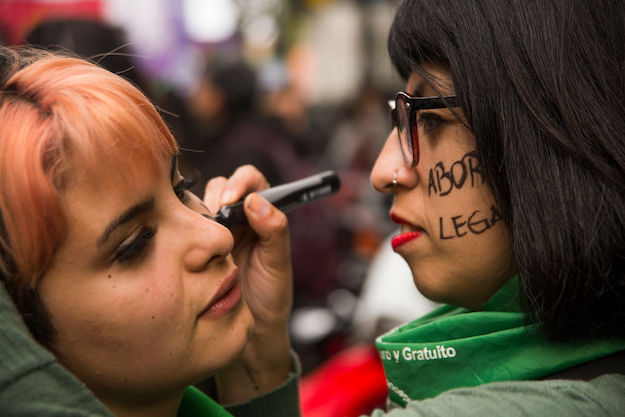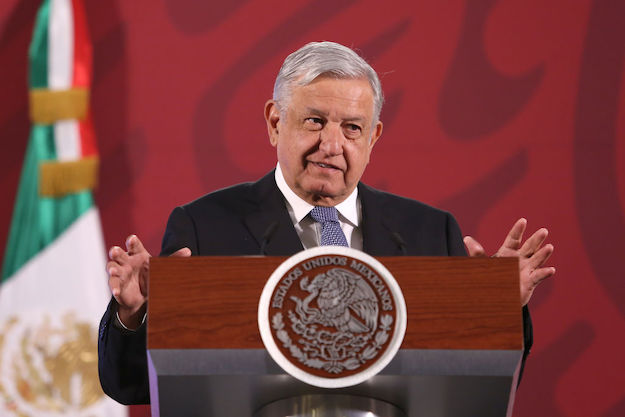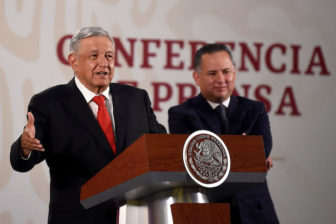BUENOS AIRES – When Lola Cufré joins thousands in Buenos Aires on March 8, International Women’s Day, in a march for women’s rights, among them the right to safe abortion, she will do it so other women can avoid her own near-death experience.
Cufré was 32 when, as a cancer patient and a mother of two, she learned she had become pregnant during chemotherapy. Doctors warned her life would be at risk if she gave birth.
Though Argentine law allows for abortion when the mother’s life is in danger or when the pregnancy is a result of rape, the long process of having to secure a judge’s authorization first meant Cufré had to resort to taking abortion pills in a hotel room. Severe bleeding left her hospitalized for two weeks.
“It took me six months to recover, six months that were filled with panic and agony,” said Cufré of her 2001 abortion. “But I had to save my own life.”
Afterward, she joined the national campaign for the right to legal, safe and free abortion. Now, thanks to an unexpected shift in the political winds, her struggle, and that of other women like her, for safe access to abortions has gained unprecedented momentum.
On March 6, the campaign presented a bill to Congress to decriminalize and legalize abortion in the first 14 weeks of pregnancy. This is the seventh time this bill has been introduced, but now, a record 71 legislators from various parties cosigned it, and Argentina’s current political landscape means it finally might have a shot.
For almost a decade, a lack of support from the governments of Néstor Kirchner and Cristina Fernández de Kirchner impeded the bill’s consideration in the legislature. During her presidency, Fernández frequently stated her opposition to abortion and blocked debate repeatedly by using her congressional majorities to prevent a quorum.
Although Fernández’s government was a leader on other progressive issues, like same-sex marriage, she often referred to her religion to explain her stance on abortion. She is Catholic, along with 77 percent of the Argentine population.
This year, under President Mauricio Macri’s center-right government, the bill might finally be debated.
“We’ve been postponing a very sensitive debate for the past 35 years – abortion,” said Macri on March 1, during his annual State of the Nation address. “I’m in favor of life, but I’m also in favor of the mature and responsible debates that as Argentines we need to have.”
Macri’s statement came as a surprise to many women’s rights groups, which had criticized him for what they see as a weak and regressive human rights agenda. But despite his personal opposition to the legalization of abortion, a combination of political and social factors have led Macri to support the debate and potentially put Argentina at the forefront of the women’s rights agenda in Latin America.
The president’s move may be part of an effort to regain political capital that has diminished in recent months. Since his party’s success in legislative elections in October, Macri’s approval rating has slipped from 49.7 percent to 40.6 percent, according to a recent poll by Management & Fit, a consultancy.
Andrés Gilio, director of the polling firm Opina Argentina, believes that unpopular policies like labor and pension reforms have contributed to this decline. Part of Macri’s motives in opening the door to the abortion debate is to mitigate this negative impact on his image and on his popularity, Gilio said.
“It will help soften his image,” Gilio told AQ. “The move will also help him attract part of the electorate that is more aligned with the center-left.”
The opinions of Argentines on the issue have also turned – something the president will have taken into consideration. A recent poll by Opina Argentina showed 44 percent of the population favors decriminalization of abortion, while 41 percent is against it. Support grows among the younger and wealthier – 49 percent of 18- to 29-year-olds, and 62 percent of higher-income respondents, are in favor of decriminalizing abortion.
“Abortion is an issue that’s helpful to (Macri’s political coalition) Cambiemos because it breaks down the opposition,” said Mercedes D’Alessandro, co-founder of Economía Feminista, an organization that seeks to raise awareness about gender inequality.
According to D’Alessandro, besides the political factors, the growing feminist movement in Argentina and the rise of global movements like #MeToo have also made it more difficult for politicians to ignore the demands of women’s rights groups.
“We’re seeing a boom in the feminist movement around the world, and it’s an issue that’s very present in the public agenda,” said D’Alessandro. “Cambiemos wants to be seen as a liberal government, and this is a liberal issue.”
In Argentina, the #NiUnaMenos feminist movement that rose in 2015 has been pushing the women’s rights agenda to center stage through demonstrations like the Women’s Strike and the Ni Una Menos march – with quantifiable success, said D’Alessandro.
“Last year, I wrote an article criticizing Macri’s State of the Nation speech because he mentioned the gender agenda only once,” said D’Alessandro. “This year, he talked about sexual education, abortion, the salary gap.”
Many Argentines are aware their president might be using the discussion of abortion rights to distract from issues that cast him in a less favorable light: 43 percent of the population believes Macri is using this debate for his own political purposes, a view Cufré shares.
“They’re using it as a smokescreen to cover everything else that’s happening – the layoffs, the pension reform, the salary negotiations with the unions,” said Cufré.
Whatever the political motivations behind Macri’s push, Cufré believes this discussion will have long-term, positive impact in securing women’s rights in Argentina.
“It gives me a lot of hope. We’ve been pushing for this day and night for years,” she told AQ.
Despite the momentum, D’Alessandro and Gilio believe it is unlikely for the bill to pass under the current legislative landscape. Only 37 percent of the members of the lower house are in favor of legalizing abortion, while 40 percent are against it, according to the Economía Feminista’s analysis. In the upper house the gap is even wider, with only 16 percent of senators in favor of the bill.
Nevertheless, D’Alessandro, like Cufré, believe that, whether the law passes or not, they’ve already achieved a victory of sorts.
“If Congress debates this issue, it’s going to be something historic for our country,” D’Alessandro said. “It’s going to be a very important reference for the rest of Latin America.”
—
He is an Argentine journalist based in Buenos Aires. Follow her on Twitter @LuciaWeiHe







